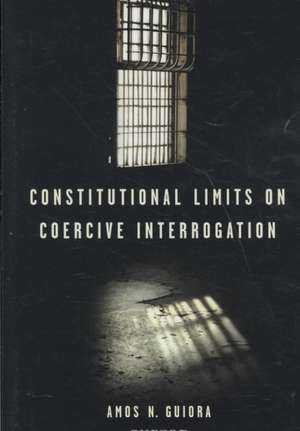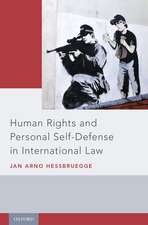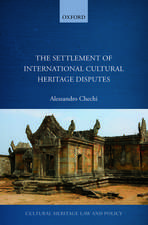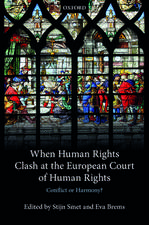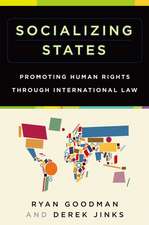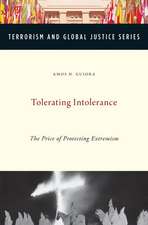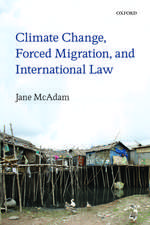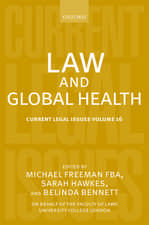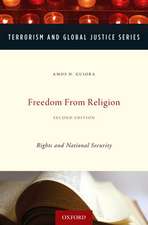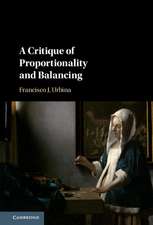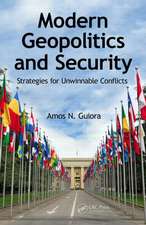Constitutional Limits on Coercive Interrogation
Autor Amos N. Guioraen Limba Engleză Hardback – 10 apr 2008
Preț: 447.92 lei
Preț vechi: 620.05 lei
-28% Nou
Puncte Express: 672
Preț estimativ în valută:
85.71€ • 89.71$ • 71.34£
85.71€ • 89.71$ • 71.34£
Carte tipărită la comandă
Livrare economică 19-25 martie
Preluare comenzi: 021 569.72.76
Specificații
ISBN-13: 9780195340310
ISBN-10: 0195340310
Pagini: 186
Dimensiuni: 236 x 157 x 15 mm
Greutate: 0.41 kg
Editura: Oxford University Press
Colecția OUP USA
Locul publicării:New York, United States
ISBN-10: 0195340310
Pagini: 186
Dimensiuni: 236 x 157 x 15 mm
Greutate: 0.41 kg
Editura: Oxford University Press
Colecția OUP USA
Locul publicării:New York, United States
Recenzii
By combining his impressive professional experience in this area with his considerable academic expertise, Guiora has written a timely and thought-provoking book. His use of the lessons learned from the interrogations of African Americans in the Deep South is highly original and very illuminating. The result is a very attractive and helpful expert guide on how to handle the explosive mix of coercive methods and human rights. This is a must-read for policymakers, human rights proponents and all those interested in one of the most difficult dilemmas facing liberal democracies today.
One of the defining features of the post-9/11 environment in the United States is the extraordinary clash between our need to interrogate alleged terrorists about future threats and our need to maintain traditional U.S. values respecting the rule of law and the dignity of persons. In Constitutional Limits on Coercive Interrogation, Professor Guiora provides a lively, succinct, and penetrating discussion of how U.S. constitutional law should accommodate these needs, at both the theoretical and practical levels. His arguments for treating such detainees under a "hybrid paradigm," in which they are neither like traditional criminals nor like prisoners of war, will likely spark considerable debate in the halls of government and academia, and may point the way forward in a crucial area of the law.
One of the defining features of the post-9/11 environment in the United States is the extraordinary clash between our need to interrogate alleged terrorists about future threats and our need to maintain traditional U.S. values respecting the rule of law and the dignity of persons. In Constitutional Limits on Coercive Interrogation, Professor Guiora provides a lively, succinct, and penetrating discussion of how U.S. constitutional law should accommodate these needs, at both the theoretical and practical levels. His arguments for treating such detainees under a "hybrid paradigm," in which they are neither like traditional criminals nor like prisoners of war, will likely spark considerable debate in the halls of government and academia, and may point the way forward in a crucial area of the law.
